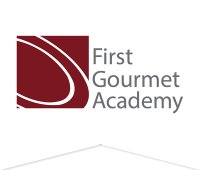Never has culinary arts enjoyed the spotlight on a grand scale more than today.
With TV highlighting various cooking shows, podcasts featuring cook shows and various web series offering basic lessons on cooking, cooking as a discipline is enjoying a modern renaissance. Considering that modern media is often permeated with cooking shows and celebrity chefs doing their magic in the kitchen, it is inevitable for some of us to be tempted to enroll in a culinary arts program. However, some of you might be deterred by the intensity and high drama portrayed by these shows. Fortunately, culinary education and instruction is absolutely nothing like how it is depicted on television. If you have ever entertained the idea of dabbling in the culinary arts and getting a formal degree out of it, you might be surprised to find that there are things you can only learn in culinary school.
Here are just some of them:
1.) How to properly read a recipe
Learning how to properly read a recipe is a pivotal lesson you need to learn in your journey as a chef. While some may argue that reading a recipe simply involves just following a set of instructions, it is so much more than that. Reading a recipe is not simply just gathering ingredients and reading directions. You need a thorough understanding of the recipe insomuch that you can write it out in your own words to show your comprehension of the recipe. Keep in mind that recipes are not meant to be rigid that you have to follow them step by step. As you read a recipe, you should start miming how the recipe will work in your own way. Recipes are merely guidelines after all and not a strict set of culinary rules.
2.) Confidence in the kitchen
More often than not, some of us already have the inherent talent and passion required to do great cooking. What we lack, however, is confidence in our skills. In this regard, enrolling in a culinary arts program will help you bolster your confidence in your cooking. However, confidence in the kitchen does not happen overnight. It requires speed and patience--especially if you are working under an incredibly tight schedule. With a rigid timeline in your course study, you do not really have any room nor time to be questioning yourself which is exactly the kind of push some culinary students need.
3.) The importance of having a good paring knife
One of the most essential tools a chef must have is his or her knife--particularly a good paring knife. You do not use just any knife to cut and peel vegetables, trim spots on potatoes and the like. Your chef's knife might be an important tool, but there are some things it simply cannot do. With this in mind, you need a good paring knife as well.
4.) There are some ingredients you SHOULD always have in your kitchen
To ensure that you have everything you need in your kitchen, you need superhero ingredients that would guarantee that anything you make in the kitchen can be made tasty. Butter is an essential ingredient that makes everything delicious (and rich) while salt adds or brings out the flavor and lemon adds just the right hint of freshness. Eggs, however, are the miracle but often overlooked versatile ingredient that can practically do anything in the kitchen. Have all of these in the kitchen and you can customize or improve just about any dish.
5.) How to test and add thickness to sauces
One of the things you will constantly hear in culinary school is the word nappe, or when you put sauce at the back of a spoon and run your finger through the sauce and it leaves a mark. When it does leave a mark, you would know it is thick enough. However, if you need to add thickness to your sauces, thickening agents such as cornstarch, arrowroot or agar agar are good options.
6.) How to tell when the oil is hot
One of the basic yet important lessons you need to learn as a chef is to determine when the oil is hot enough to start cooking. There are many ways to do it, but one failsafe way to do it is to move the oil back and forth until you start seeing "the fingers". These fingers are the small streaks you will start noticing as you move the oil back and forth in the pan.
7.) Clean as you go--and not at the end
This might come as a surprise but some culinary schools puts major emphasis on organization insomuch that a major chunk of your grade depends on it. This is to encourage students to keep their workspaces clean and organized. While it may sound impossible, cleaning as you cook makes it so much easier to stay organized and efficient. In this regard, wipe countertops and cutting boards frequently (particularly if you are working with raw meat). Keep sinks clear of any dirty dishes and use any spare moments you might have to get a head start on your cleaning. While it may sound easier to just leave the cleaning until after you have cooked, you can relax and enjoy your meal better if you do not have to face a tower of dishes for cleaning afterwards.






